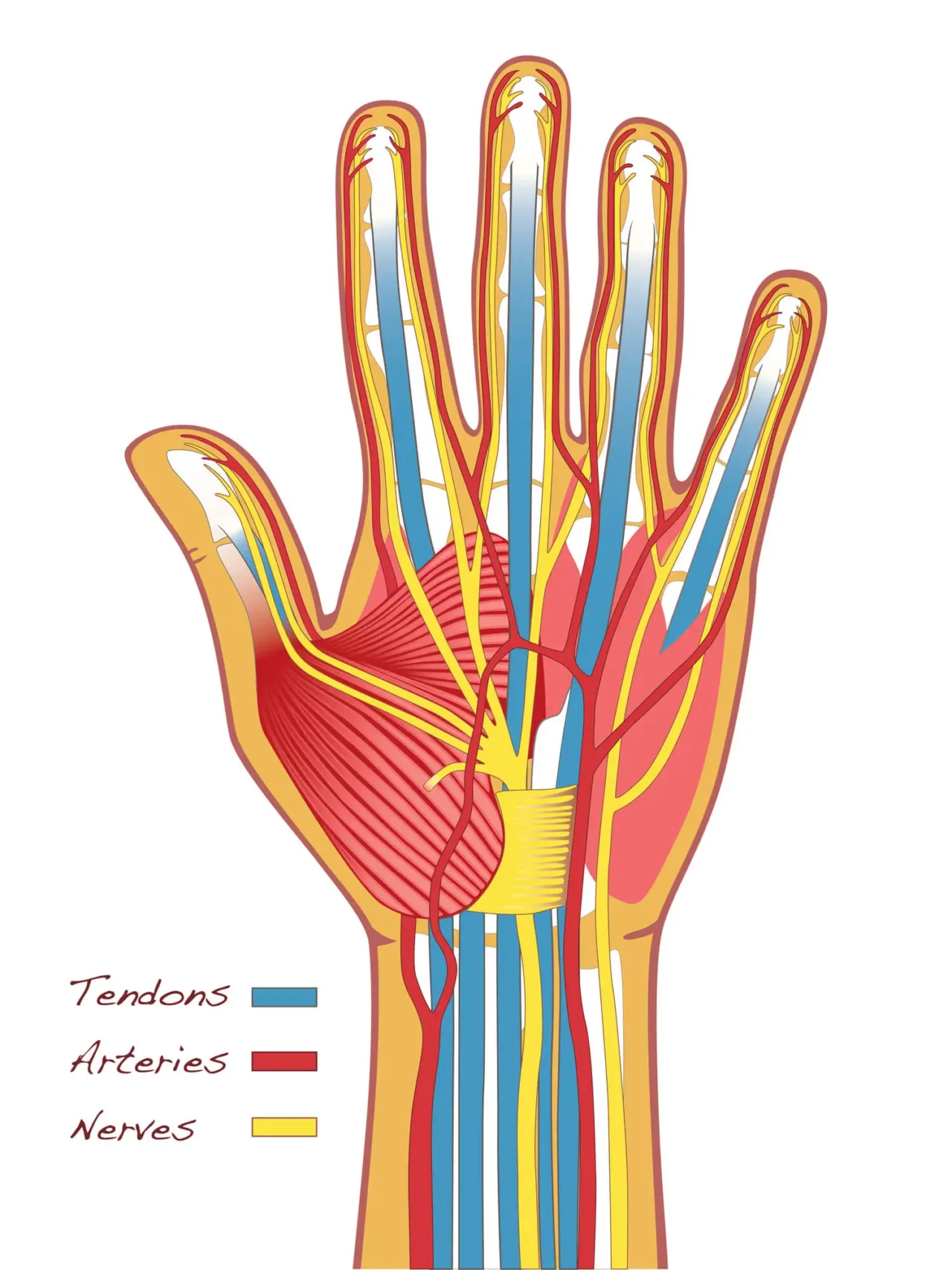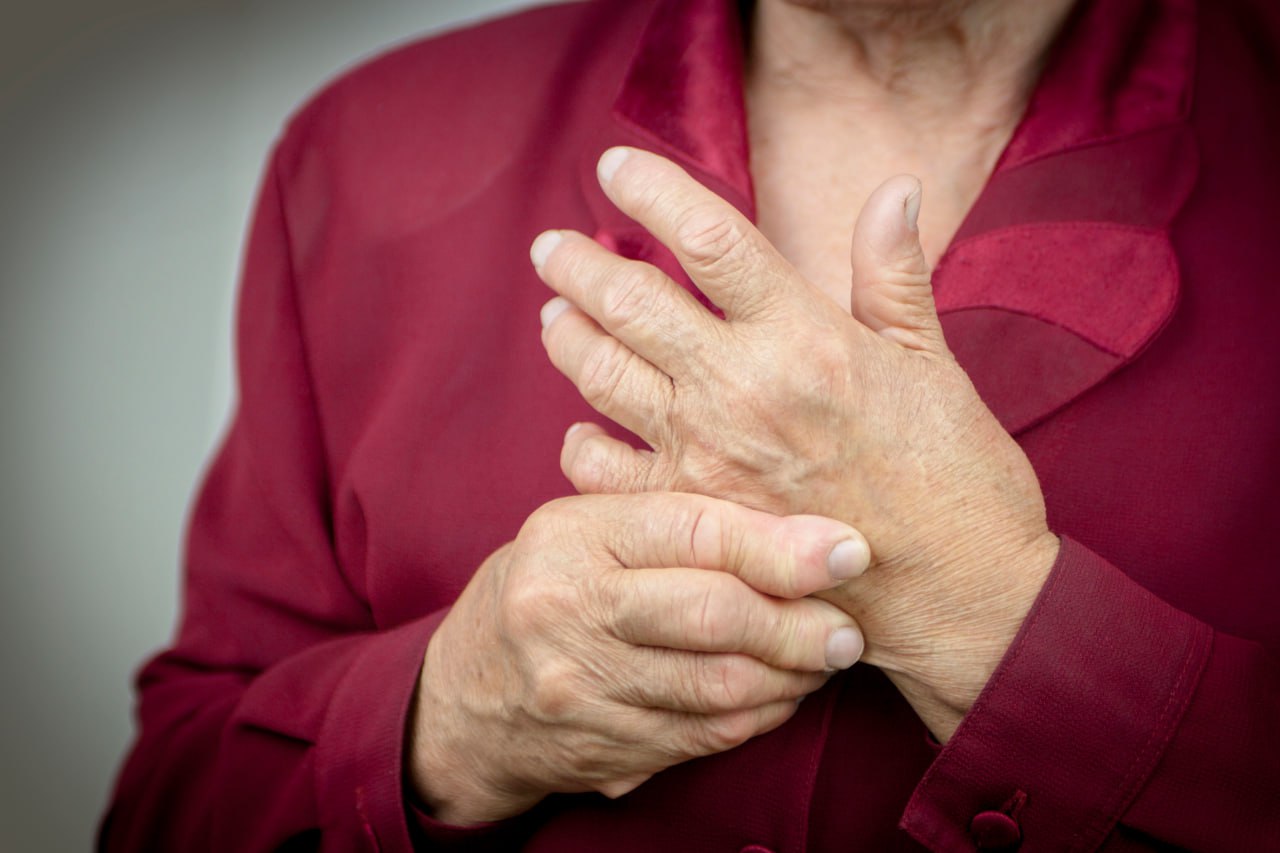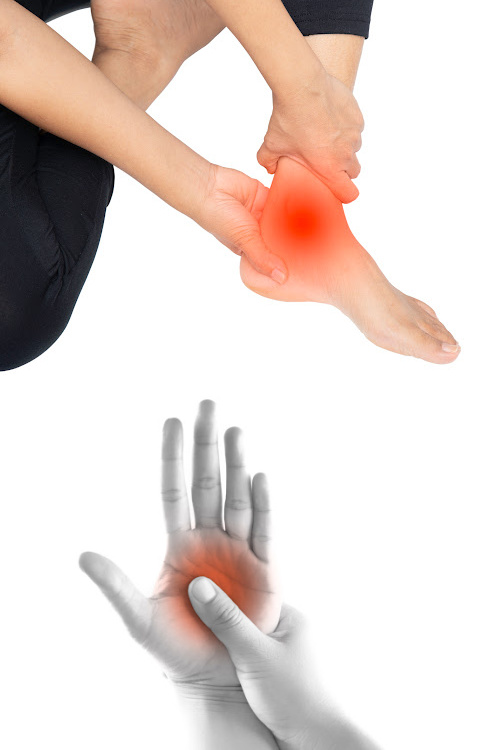Experiencing persistent weakness in your hands can greatly affect your quality of life. It can make everyday tasks difficult and be especially problematic if your job requires manual dexterity. Weak hands can make it challenging to pick up objects or grip tools effectively.
Various underlying conditions can lead to hand weakness. Understanding the root cause will help you determine the most effective treatment plan.
Hand Weakness And Its Impact On Anatomy And Physiology
The human hand consists of 27 bones (19 in the hand and eight in the wrist), 34 muscles, and numerous tendons, ligaments, and nerves. This complex anatomy allows the hand to perform a wide range of movements. The muscles in the hands are responsible for flexing, extending, abducting, and adducting the fingers and thumb, enabling activities such as picking up objects, writing, typing, and pushing buttons.
However, experiencing weakness in your hands can impair these activities. Hand weakness refers to decreased strength or difficulty in performing specific movements, which can significantly impact daily functioning.

Negative Implications Of Hand Weakness
Experiencing hand weakness can make everyday tasks challenging or even impossible. It affects your ability to grip objects and reduces finger strength. This can lead to difficulties with activities such as turning door handles, holding a pen for writing, typing on a keyboard, driving, and playing musical instruments.
Hand weakness may also reduce your range of motion and mobility, impacting your independence. Since hands are essential for many daily tasks, weakness can significantly disrupt your ability to perform these activities, affecting your overall quality of life.
Conditions Associated With Hand Weakness
Hand weakness is generally referred to as a functional disorder, which is a problem with the functioning of muscles, nerves, or tendons. A functional disorder of the hand can lead to weakness, numbness, and a reduced range of motion. Some conditions that can cause weakness in the hands include:
Carpal Tunnel Syndrome
Carpal tunnel syndrome (CTS) is a common condition causing numbness, tingling, and weakness in the hand due to the compression of the median nerve at the wrist. Symptoms can range from mild to severe based on the pressure on the nerve.
CTS is often caused by repeated stress and overuse of the wrist but can also result from medical conditions such as rheumatoid arthritis, obesity, diabetes, thyroid disorders, and pregnancy.
Cubital Tunnel Syndrome
Cubital tunnel syndrome occurs when the ulnar nerve in the elbow becomes compressed, leading to tingling, numbness, and weakness in the hand. This condition can be caused by activities that stress the ulnar nerve, such as sleeping with a bent arm or repeatedly leaning on the elbow.
Nerve Compression
Nerve compression occurs when surrounding tissues, such as muscles, tendons, or ligaments, put pressure on a nerve, causing pain and weakness in the hands. This can be due to an injury or medical conditions like a tumor or cyst in the wrist or a carpal fracture.
Tendinitis
Tendinitis is the inflammation of the tendons, leading to pain, swelling, and weakness in the hands, often accompanied by stiffness or tenderness. It can develop gradually or suddenly due to overuse, repetitive motion, injury, or medical conditions like rheumatoid arthritis.
Viral Infections
Viral infections such as mumps, polio, and cytomegalovirus can damage the nerves in the hand, leading to weakness. These infections attack the myelin sheath, the protective coating around the nerve. Symptoms may be temporary or permanent, depending on the infection.
Muscular Dystrophy
Muscular dystrophy is a group of genetic disorders causing progressive muscle weakness and degeneration, including in the hand muscles. It leads to weaker and smaller muscles over time, weakening grip strength and making everyday tasks difficult. Symptoms include weakness, joint pain, and reduced range of motion.
Diabetes
Diabetes is a chronic metabolic disorder characterized by elevated blood glucose levels. People with diabetes are at increased risk of nerve damage and hand weakness due to poor circulation. Uncontrolled diabetes can lead to neuropathy, causing numbness, tingling, and muscle weakness in the hands.
Rheumatoid Arthritis
Rheumatoid arthritis is an inflammatory autoimmune disorder where the body’s immune system attacks its tissues, causing joint pain, swelling, stiffness, weakness, and loss of dexterity in the hands. This chronic disorder often affects the small joints of the hands and wrists first.
Peripheral Neuropathy
Peripheral neuropathy affects the peripheral nervous system, causing numbness, tingling, muscle weakness, and hand pain. It can be caused by diabetes, chemotherapy, or other medical conditions.
Understanding the underlying conditions associated with hand weakness can help in determining the most effective treatment options to manage and alleviate symptoms.
Conditions We Treat at NextPain Care
At NextPain Care, we specialize in treating a wide range of hand and wrist conditions. Our skilled team of physicians and therapists works closely with each patient, collaborating to create personalized treatment plans that address their unique needs.

Carpal Tunnel Syndrome Treatment
Carpal tunnel syndrome is a condition that causes pain, numbness, and tingling in the hands and wrists, significantly affecting daily activities and hand...

Rheumatoid Arthritis Pain Treatment
Rheumatoid arthritis can be a debilitating and painful condition that causes swelling, joint damage, and immobility. NextPain Care offers a comprehensive approach to treating the pain associated with rheumatoid arthritis and the condition itself. We aim to...

Peripheral Neuropathy Treatment
Peripheral neuropathy is a condition that can cause severe pain, impacting daily life. At NextPain Care, we use evidence-based practices to provide relief from the painful symptoms of peripheral neuropathy, adhering to the highest standards set by medical...
NextPain Care Approach For Neurologically-Related Weakness In Hands
At NextPain Care, we use an evidence-based approach to treating chronic conditions, such as neurologically-related hand weakness. This means that we focus on addressing the underlying cause of the weakness rather than simply treating the symptoms.
Our multidisciplinary approach ensures that our patients receive comprehensive care to make sure that we are addressing all aspects of their condition. We employ physical therapy and mind-body therapy techniques to help improve the strength and function of the hand while reducing pain and discomfort.
We also utilize advanced medical interventions, such as nerve blocks or injections, tailoring our approach to each individual’s needs. Our goal is to ensure that treatments are adjusted as necessary to provide the most effective relief.
Don't let weakness in your hand affect your daily activities.

